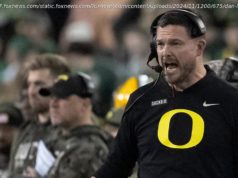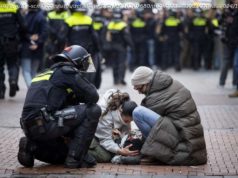BUENOS AIRES | A confident Venezuelan opposition pledged to accept the outcome of nationwide gubernatorial races on Sunday even as it said the nominally impartial election authority was suppressing votes to favor candidates loyal to embattled President Nicolas Maduro.
BUENOS AIRES | A confident Venezuelan opposition pledged to accept the outcome of nationwide gubernatorial races on Sunday even as it said the nominally impartial election authority was suppressing votes to favor candidates loyal to embattled President Nicolas Maduro.
While they decried the government’s tactics, leaders of the anti-Maduro Democratic Unity (MUD) bloc were careful not to sow doubt on an election likely to deal a crushing blow to the socialist leader and set Venezuela on a course to his ouster in presidential elections slated for next year.
Opposition leader Julio Borges, president of the disenfranchised National Assembly, noted on Sunday afternoon that Election Day itself had gone smoothly except for minor “incidents.”
“People have turned out in droves to vote,” Mr. Borges said. “The incidents were very isolated, not massive.”
Some 18 million citizens were called to select governors in all 23 states, only three of which are currently led by Maduro foes. Analysts and surveys predicted opposition victories in at least 16 — and perhaps as many as 21 — with the extent of the landslide hinging primarily on turnout.
Voting was set to end at 6 p.m., but final tallies were likely to become available hours, or potentially days, later, with the National Electoral Council (CNE) known to delay publication of results unfavorable to the regime.
Outrage over the council’s last-minute decision to relocate more than 200 polling places, meanwhile, ultimately may have helped the opposition’s turn-out-the-vote effort, Ramon Guevara, MUD’s gubernatorial candidate in the western state of Merida, told The Washington Times.
“People who hadn’t been determined to participate have [now] expressed the decision to go out and vote, no matter where they’ve been sent,” said Mr. Guevara, whose state saw the greatest number of changes — with more than 10 percent of all polling places affected.
To justify the move, the electoral council cited alleged “acts of violence during the election of the National Constituent Assembly,” a controversial, pro- Maduro superbody whose July 30 selection the opposition had boycotted.
Critics said this so-called “crazy mouse” strategy, designed to confuse and intimidate voters, was just one of many ploys to limit what was shaping up to be a crushing defeat.
“My polling place for the past 24 years will not be working this time, and I am being sent to a different, small place,” said Yorelis Acosta de Oliveira, a resident of the opposition stronghold of Miranda and a political scientist at the Central University of Venezuela in Caracas.
Voters of her middle-class neighborhood were forced to cast their ballots in “barrios” — the often crime-ridden working-class neighborhoods where Mr. Maduro retains comparatively high levels of support.
“The [CNE] is trying to keep people from voting because we are afraid of the city,” Ms. Acosta said. “I don’t know the area where [we] go to vote. It’s an area that can be dangerous.”
Nevertheless, anecdotal evidence suggested solid turnout, with voters waiting in line for up to four hours — a picture starkly different from the July 30 election, whose legitimacy was called into question by voting machine maker Smartmatic.
“[Today] will definitively unmask what the turnout [really] was in that process,” Mr. Guevara said. “But what’s most important is that in Merida, and in the rest of the country, we have our backers at the polling places.”
National MUD spokesman Freddy Guevara, who is no relation to the gubernatorial candidate, on Saturday had underlined his bloc’s trust in the system.
“We have a system that will indicate to us if any of the machines were tampered with,” Freddy Guevara warned. “Our teams are organized, and we know what we are up against.”
Mr. Maduro ’s United Socialists, meanwhile, were not showing any open signs of resignation ahead of the vote. They were, in fact, unlikely to suffer a “total defeat” given their remaining strongholds in Venezuela ’s rural areas, Ms. Acosta said.
“Throughout the week, the government has dispatched its campaign, with giveaways of bags of food [and] the sale of cheap food,” she said. “And in the interior, they can [still] subdue — they can buy loyalties in this manner.”
Even so, rural Merida — governed since 2000 by allies of Maduro and his predecessor, Hugo Chavez — has learned its lesson, said Ramon Guevara, the candidate. And no matter the obstacles, he remains convinced that elections, not force, will mark Venezuela ’s way out of the abyss.
“We don’t have the slightest doubt that the opposition will win here [today] in Merida,” he said. “[And] a military coup doesn’t make any sense. For us democrats, the only weapon is the constitutional way, the electoral way.”
Maduro foes promise to respect election’s outcome






